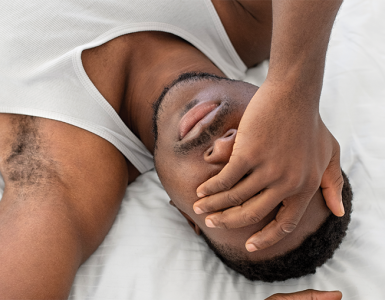ROUTINE: Your stress hormones may go into overdrive?
By Own Correspondent
LIVERPOOL, England — Most of us already know that water is essential for staying healthy. But new research suggests that how much you drink each day could also affect how your body reacts to stress.
In a lab experiment, young adults who typically drank less than a litre-and-a-half of fluid per day had a much bigger spike in the stress hormone cortisol compared to those who drank closer to four litres. That’s about a 55 percent stronger stress response, just from differences in everyday drinking habits.
Cortisol is the body’s main “stress chemical.” It helps us deal with challenges in the short term, but when it stays too high for too long, it can wear us down. That makes this study, published in The Journal of Applied Physiology, a reminder that hydration may play a bigger role in long-term health than most people realize.
We usually think of being dehydrated in terms of feeling thirsty, tired, or having a headache. But inside the body, water balance is tied to hormones that do more than just keep fluids in check.
One of them, arginine vasopressin (AVP), helps the body save water when you’re running low. But AVP also has another side effect: it tells your body’s stress system to release more cortisol.
In other words, when you’re habitually under-hydrated, the very system that responds to stress gets triggered more easily, leaving you prone to a bigger hormonal surge when life throws a challenge your way.
Researchers from Liverpool John Moores University and collaborators recruited 62 healthy adults aged 18 to 35. Using national nutrition survey data, they identified two extremes of daily drinking habits:
• Low fluid intake group: averaging about 1.3 litres per day (just over five cups).
• High fluid intake group: averaging about 4.4 litres per day (roughly 18 cups).
After screening, 32 participants (16 in each group) completed the experiment. For a week, they tracked exactly how much they drank, and researchers confirmed hydration status with urine tests. Then came the stressful part: the Trier Social Stress Test, a well-established lab challenge involving a mock job interview and rapid-fire mental math performed in front of stony-faced observers and a video camera.
Saliva samples collected before, during, and after the test allowed researchers to track cortisol, while heart rate monitors and questionnaires measured anxiety and physical arousal.
On the surface, both groups reacted similarly: their hearts raced, and they reported feeling more anxious. But under the hood, their hormones told a different story. In the low drinker group, cortisol levels spiked and stayed high even after the stressful tasks ended. In the high drinker group, cortisol barely rose above baseline.
On average, the low drinkers showed a 55 percent bigger cortisol jump.
“These novel findings show greater cortisol reactivity to acute psychosocial stress in adults with habitual low fluid intake and suboptimal hydration,” the study notes.
The study also looked at practical indicators of hydration that everyday people can check without lab equipment. One of the simplest? Urine colour.
Using a standard eight-point chart, they found that participants with darker urine (levels 4 or higher) had stronger cortisol responses than those with lighter urine. Put simply: if your pee is regularly dark yellow in the morning, your body might also be primed for a sharper stress surge.
Lab tests of urine concentration confirmed the same trend: more concentrated urine went hand in hand with bigger cortisol spikes.
Cortisol isn’t always bad. In short bursts, it helps us mobilise energy, sharpen focus, and respond to challenges. But when levels stay high too often – thanks to chronic stress, poor sleep, or perhaps inadequate hydration – the consequences can add up. Elevated cortisol has been linked to weakened immune defences, higher inflammation, and increased risk for conditions like cardiovascular disease and metabolic disorders.
Previous studies have already found that people who don’t drink enough water face higher risks of kidney problems, heart issues, and metabolic disease. This new work provides a plausible mechanism: by ramping up the body’s stress response, habitual low fluid intake may nudge people onto a path toward poorer health.
How much water is enough?
Guidelines generally recommend about 2.5 litres per day for men and 2 litres for women, including both drinks and the water naturally present in foods. Yet surveys show many adults fall short, especially those who rely heavily on coffee, soda, or alcohol rather than plain water.
The high-intake group in this study was well above those recommendations, while the low group was far below. That doesn’t mean everyone should chug four litres a day, but it does underscore the importance of meeting basic fluid needs.
The study has its limitations. It compared only the highest and lowest drinkers, leaving out people with moderate intake. The design was cross-sectional, meaning it can’t prove that drinking more water will reduce stress responses—only that the two are linked. And the stress test, while reliable, takes place in a controlled lab; real-world stress is messier.
Still, the findings are compelling. With just 32 participants, the researchers found a clear, consistent pattern across different measures of hydration. It’s also the first study to connect everyday drinking habits to the way the body’s stress system behaves under pressure.
The Bottom Line: Stay hydrated!
If you needed another reason to reach for a glass of water, here it is. Staying hydrated might not only help you feel sharper and more energetic, it could also make your body’s stress system less reactive.
That doesn’t mean water is a magic bullet. But in a world where stress is hard to avoid, something as simple as paying attention to your daily fluid intake and the color of your urine might give you a little extra resilience.
As small daily habits add up, the choice between a parched system primed for stress and a well-hydrated body ready to cope may be more important than most of us realise. – Study Finds
In a nutshell
• Adults who drank very little fluid daily (1.3 L) had about 55% greater cortisol reactivity during a lab stress test compared to high drinkers
• Heart rate and anxiety felt the same in both groups, but their hormonal stress systems behaved differently.
• Urine colour proved a simple indicator: darker urine (≥4 on an 8-point chart) signaled stronger cortisol spikes.
• Findings suggest that habitual low fluid intake may amplify the body’s stress response, possibly helping explain why poor hydration has been tied to health risks over time.


































